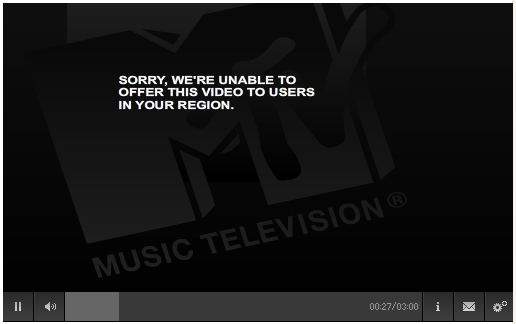Category: entertainment industry
Competing with Free
 "You cannot compete with free" is a commonly held perception of the music industry in its fight against piracy. Piracy must be tackled with harder and heavier penalties. But is ‘free’ what the industry is competing with?
"You cannot compete with free" is a commonly held perception of the music industry in its fight against piracy. Piracy must be tackled with harder and heavier penalties. But is ‘free’ what the industry is competing with?
Innovation
Long before the Apple iTunes Music Store came along, angry consumers were already sharing music online. An adolescent in an attic programmed the Napster service (the precursor to services like Kazaa and Limewire) and demonstrated that there was a market which, along with its billions of revenue, was rejected by the industry. For the consumer it was a logical step: content could be bought in the same way the Internet worked, without international shopping hours. Albums that were never released in the Netherlands could be on your hard disk ten minutes later. Films and series that were not released in the Netherlands could still be viewed immediately.
We see the same principle in the game industry. The main new feature in Sony’s latest PlayStation Portable games is that you can download and save games to the device. Handy: you are no longer dependent on opening hours and can store multiple games so you don’t have to pack a bag full of games to take on holiday. That was possible even with the previous version of the PSP, thanks to piracy.
Supply and demand
Demand from consumers is simple to summarize: Give me what I want when I want, for a reasonable price.The industry response to that consumer demand has been: you’ll buy what you’re given, if we want to give it to you, for a disproportionate price. There is, therefore, clearly a large gap between consumer demand and the supply from the industry. As a consumer you go quickly to find a party that best meets your demand. I’ll give you what you want, when you want it, for free. That is the promise of the ‘pirates’. It makes sense that consumers are more attracted to the illicit market than legal. But it’s more than just prices.
This is the industry’s latest response to the idea of boundless Internet borders:

This is an example of the content from the American MTV website often seen in Europe. The American Broadcasting Missed Hulu.com service remains inaccessible to people outside the U.S. For Europeans, they are expected to grovel around programming their DVD recorders at the time when a national station broadcasts a series once. But that’s not what the modern consumer wants.
The alternative the pirate market offers is that, within a few hours of a US broadcast, the latest episode will be automatically downloaded to your hard drive or iPhone without hassle, so you can watch it whenever and wherever you want. An added bonus is the ad breaks are automatically removed for you. For Americans, the market is also not ideal: it’s great that they can watch a series from the iTunes Store, but the prices are even higher than ordering the DVD box set of the same season – and that’s even before you factor in the physical costs of shipping. As with online music albums, it seems the industry thinks that the consumer will happily pay as much for a few bits and bytes online as they would for a medium that is manufactured, packaged and transported to a shop with its attendant retail storage costs.
Flexibility
It’s evident that consumers are even willing to pay for piracy with sites like AllOfMp3.com – a kind of iTunes Store, where the price for an individual song was about ten cents and the price for an album around two euros. Allofmp3’s customers know that the downloads are not legal but that makes little difference: the service works easily and the price is one the consumer is happy to pay for the product. The AppStore for the iPhone, where most applications cost around 0.80 euros, is a great success: it is a price people are willing to pay. The advantage of “free” is offset by the extra effort it would take to find great music on the internet.
"Killing the industry ‘
By ensuring that CDs could not be copied by only allowing them to work in certain devices, and with stars pleading poverty from the protection of MTV, the industry failed its customers’ needs and ensured a massive exodus.
It’s not piracy that has destroyed the market: it is the industry itself.

 Nederlands
Nederlands
 English
English